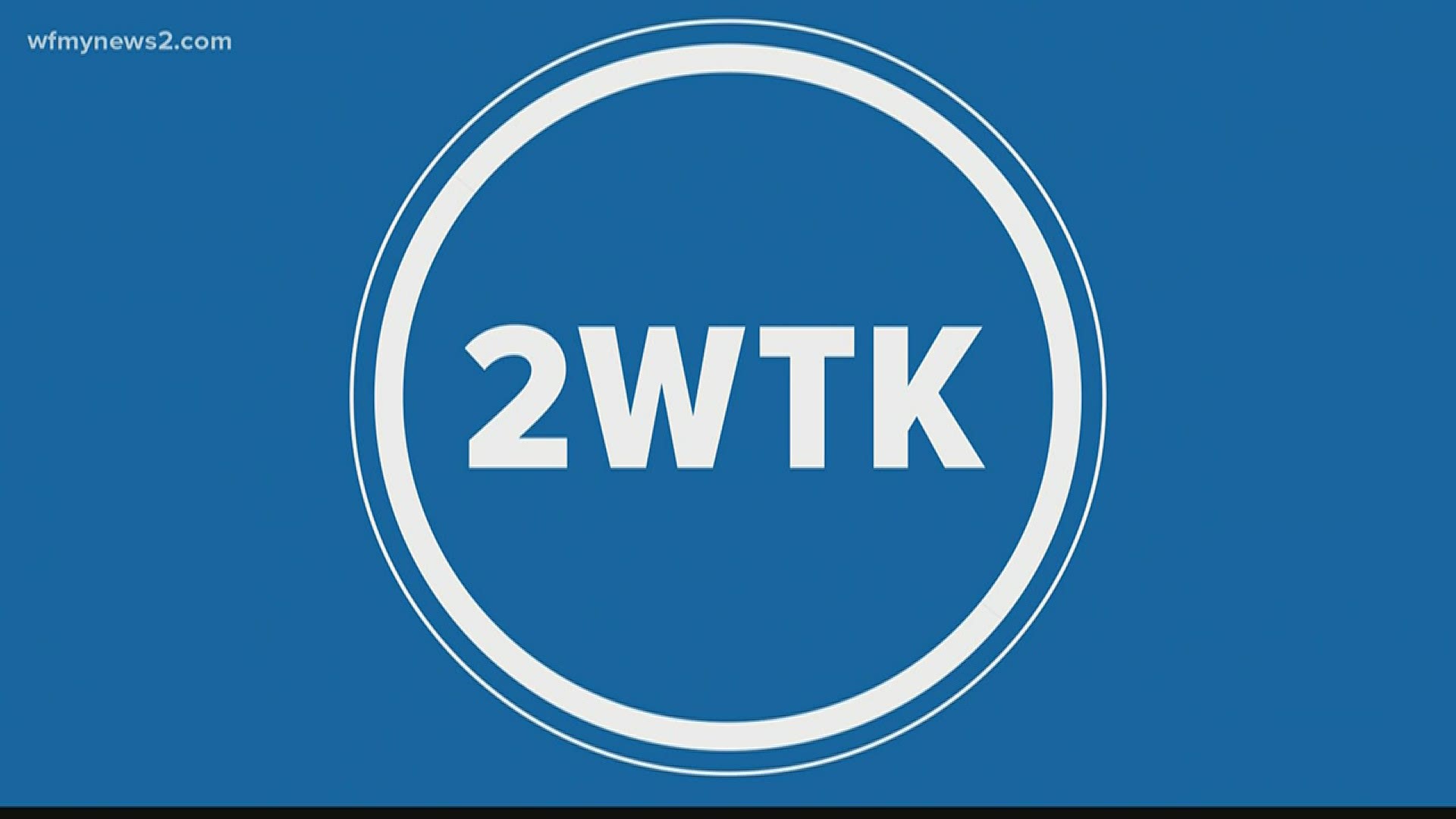GREENSBORO, N.C. — Internet-based companies have built an industry around collecting consumer data to fuel targeted ads and create new products. Now, businesses from Facebook to smart thermometer companies said they can repurpose that information—and their data collecting expertise—to help manage the coronavirus pandemic.
Public health experts said medical testing of individuals remains their top priority, but that consumer data can be valuable for spotting new outbreaks and tracking whether people are obeying stay-at-home directives. Privacy advocates, who are typically skeptical of how technology companies handle consumer data, are generally supportive, too.
“There’s no doubt that crowdsourced data can be useful in combating COVID-19,” said Justin Brookman, director of privacy and technology policy for Consumer Reports. “And a lot of the applications we’re seeing show that data can be used in privacy-preserving ways, by either aggregating the data or only collecting and using it with clear permission.”
Tech companies already have access to some kinds of data, such as what people are searching for online. However, in some cases consumers can choose whether or not to participate.
Here’s a breakdown of the major initiatives getting underway, what data they use, and what they promise for the fight to control the coronavirus.
Symptom Tracking Surveys
The next time you log in to Facebook, you may be invited to complete a survey asking whether you have COVID-19 symptoms. This kind of “syndromic surveillance” is meant to detect regional upticks in disease symptoms.
Syndromic surveillance is important because it generates information so quickly, says Denis Nash, M.D., Ph.D., a professor of epidemiology at the City University of New York School of Public Health. Diagnostic tests are obviously critical, he says, but “that all happens days or weeks after someone becomes infected.”
The Facebook survey is being conducted by the Carnegie Mellon University Delphi Research Center. “CMU Delphi Research won’t share individual survey responses with Facebook, and Facebook won’t share information about who you are with the researchers,” Facebook says in a blog post.
Facebook says over a million people responded to the survey in the first two weeks, and the first results were published last week.
Apple-Google Coronavirus Phone App
Apple and Google’s “proximity tracking” apps are set to launch in May. Their system is meant to tell people whether they’ve come near someone with a coronavirus infection, and should therefore take precautions such as self-quarantine.
Here’s how it works. Download an app and your phone will keep a log of other phones it comes near over a 14-day period. If the owner of one of those phones also downloads the app and later receives a COVID-19 diagnosis, they can share that information. Then you’ll get notified. If you’re the one to get a diagnosis, you can send out an alert that reaches other people.
The details are complicated, but here are two critical points, from a privacy perspective: It’s all opt-in, and much of the data is interpreted on your phone and not ever shared with the technology companies.
Peter Eckersley, an artificial intelligence ethics and privacy researcher, has become a leading proponent of the use of technology to track the pandemic. “Apple and Google have picked a really good model,” he says, one that could preserve individual privacy while providing individuals and health officials with important information.
If millions of people participate in the Apple-Google project, and it’s combined with wide-scale testing and other components of contact tracing, the effort could help save hundreds of thousands, or even millions, of lives, Eckersley says.
“There are plenty of scenarios where you launch these apps and they are ineffective,” he says. “But there are also scenarios where we might change the course of the pandemic. It’s really worth doing.”
DNA Research Projects
The genetic testing companies 23andMe and Ancestry always ask new customers for permission to share their data with medical researchers. Millions of consumers have opted in over time, and both companies now say they are embarking on large-scale studies to search for genetic clues that predict how severely a patient will react to a coronavirus infection.
“Ultimately, we want to publish our research findings in order to help provide more insight on COVID-19 for the scientific community,” Joyce Tung, Ph.D., 23andMe’s vice president of research, said in a press release.
The company’s customers are already being asked to participate in surveys for these projects. Researchers contacted by Consumer Reports say DNA data might not yield coronavirus insights quickly—or ever. But if the research does bear fruit, it could help scientists develop treatments or a vaccine.
Location Data
Location data siphoned from consumers’ smartphones is a goldmine for targeted advertising. During the pandemic, technology companies have started supplying it to public health researchers.
Researchers are using location data to study how closely groups of people are following well-publicized exhortations to restrict day-to-day travel. A coalition of academics called the COVID-19 Mobility Data Network is using such data to advise governments on which social distancing messages work best.
In addition to sharing data with researchers, Apple, Facebook, and Google are publishing charts on travel patterns that anyone can browse through. It’s interesting stuff.
Location data brokers such as Cuebiq, Foursquare, Unacast, and X-Mode—which collect location information through phone apps—are releasing similar information. The results are already being put to use. In Los Angeles, daily mayor’s reports on the city’s response to the pandemic include mobility data from Apple and Unacast.
The data “can be useful in terms of identifying where we’re likely to see problems,” said John Swartzberg, M.D., a clinical professor emeritus at the University of California, Berkeley’s School of Public Health. The data could be combined with rates of emergency room visits, deaths, intensive care unit admissions, and other details.
“That kind of dataset would be fabulous,” Swartzberg said. “It’s crazy that we haven’t been doing it already.”
Smart Thermometer Data
Kinsa sells a smart thermometer that uploads users’ temperatures to the cloud, where the data can be used to track the spread of a disease. During the pandemic, Kinsa says it has been able to identify regional spikes in body temperature, which you can see on the company’s “US Health Weather Map.” Data from other wearable technology companies, such as the Oura Ring and Fitbit, are being used for similar projects.
“We’re still in the exploratory stages, but it’s a good way to get a rough geographic breakdown of whether or not there’s disease activity in a given area,” says George Rutherford, M.D., a professor of epidemiology and biostatistics at the University of California, San Francisco, who is using Kinsa data to track the coronavirus.
These datasets have shortcomings. Early adopters who run out to buy a smart thermometer might not represent the general population, and there isn’t enough data for most regions. But, Rutherford said, “you’re not trying to get a perfect estimate of the prevalence or incidence of temporal disease in the population. What you want to do is follow trends.”
“As long as the flaws and biases in the data stay the same over time, it’s still totally useful,” he said.
Search Trends
Google’s ocean of search data is often used by public health researchers, and in the past it has proved to be particularly useful in tracking the flu.
You can get a glimpse of the kind of data available through Google Trends, which shows spikes in search terms, filtered by date or location. The company now has an online hub for search trends related to COVID-19 that may reveal clues to where new outbreaks are emerging.
In a New York Times op-ed, data scientist Seth Stephens-Davidowitz wrote searches for the phrase “I can’t smell” and other COVID-19 symptoms may be able to predict regional spikes in diagnoses. The data could even reveal underreported symptoms before doctors pick up on them.
“There’s some real utility here,” Rutherford sa. “We need the data to get down to the county level before it’s useful, but this is similar to the kind of surveillance we’re doing in a lot of other areas. The more data the merrier.”
FACTS NOT FEAR
Remember facts, not fear when talking about the coronavirus. You should take the same measures recommended by health leaders to prevent the spread of the flu and other viruses. That means washing your hands, avoiding touching your face, and covering coughs and sneezes.
WHERE YOU GET INFORMATION ABOUT THE CORONAVIRUS IS IMPORTANT
It is important to make sure the information you are getting about the coronavirus is coming directly from reliable sources like the CDC and NCDHHS. Be careful not to spread misinformation about coronavirus on social media.
NC CORONAVIRUS HOTLINE
The state also has a special hotline set up where you can call 866-462-3821 for more information on the coronavirus. You can also submit questions online at ncpoisoncontrol.org or select chat to talk with someone about the virus.
You can also text keyword VIRUS to WFMY News 2 at 336-379-5775 to find out more information.


